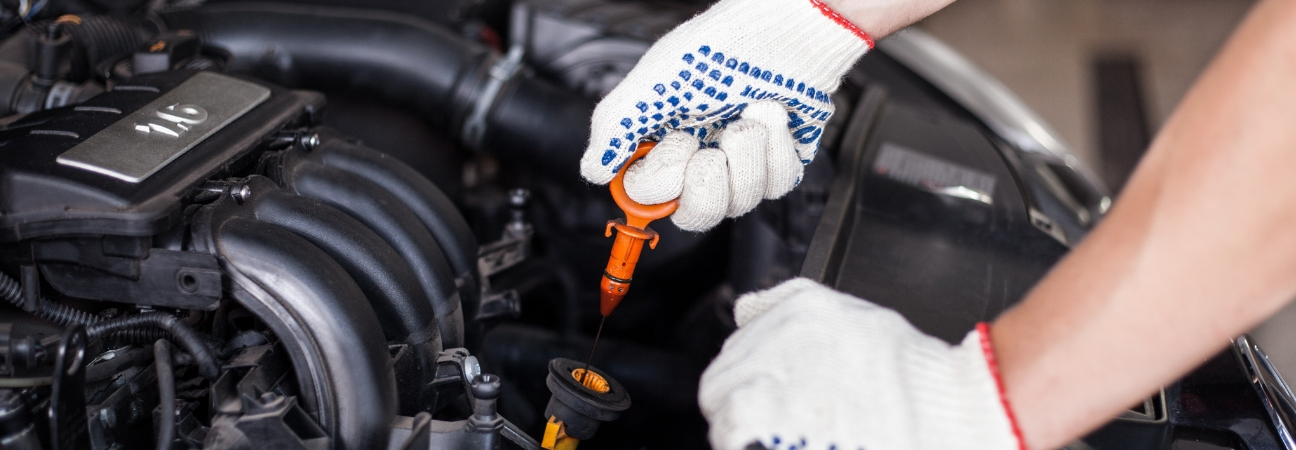Featured
Your vehicle relies upon different liquids to keep its components running smoothly and effectively. Disregarding these liquids can lead to reduced performance, possible safety and security threats, and costly repair work. Recognizing the role of each fluid and remaining proactive in maintenance guarantees your vehicle operates at its finest. This post discovers the key vehicle liquids and their importance to your cars and truck's health.
![]()
Why It Matters: Without proper lubrication, engine components can grind versus each various other, resulting in significant damage. Maintenance Tips: Inspect your oil degree monthly using the dipstick and round off if needed. Change the oil and filter according to your vehicle's solution schedule, usually every 3,000 to 7,500 miles depending on the oil type and driving conditions. 2. Coolant: Managing Engine Temperature. Coolant, also understood as antifreeze, helps keep your engine's temperature level within the optimal range. It prevents overheating throughout warm weather condition and cold during cool conditions.
Why It Issues: Insufficient or degraded coolant can bring about engine overheating, which can trigger severe damages. Upkeep Tips: Examine the coolant storage tank frequently and look for leakages or staining. Flush and replenish coolant as recommended, normally every 2 to five years. 3. Brake Liquid: Dependable Stopping Power. Brake liquid is essential for your car's stopping system, moving the force from your foot on the brake pedal to the brakes themselves. Gradually, brake fluid can soak up dampness, which reduces its performance.
Why It Matters: An endangered braking system can severely impact your safety and security. Maintenance Tips: Check the brake liquid tank and make certain the degree remains within this array. Modification the fluid every a couple of years or as required. 4. Transmission Liquid: Smooth Gear Shifts. Transmission liquid oils the transmission parts and ensures seamless gear modifications. It additionally avoids getting too hot by cooling the system.
![]()
Why It Issues: Overlooked transmission fluid can bring about gear slippage, overheating, and even total transmission failing. Upkeep Tips: Screen the fluid's level and problem routinely. Replace it according to the maker's recommendations, commonly every 30,000 to 60,000 miles. 5. Power Steering Liquid: Simple And Easy Handling. Power guiding fluid helps in smooth and accurate steering. Reduced or contaminated liquid can make steering more hard, putting stress on the system.
Why It Issues: Poor guiding responsiveness can compromise your control over the lorry. Maintenance Tips: Consistently check the fluid level and shade, and top it off as needed. Be conscientious to leakages or unusual steering noises. 6. Windshield Washer Liquid: Clear Exposure. While it does not influence performance, windshield washer fluid is important for preserving visibility, especially in adverse problems.
![]()
Why It Issues: A clean windscreen ensures you can see plainly, lowering the threat of crashes. Upkeep Tips: Replenish the washing machine fluid storage tank regularly and use a formula fit to your climate to avoid cold or streaking. Why Routine Liquid Maintenance is Vital. Ideal Performance: Proper fluid levels and top quality ensure all systems operate efficiently. Security Guarantee: Brake and power guiding fluids directly impact your capability to regulate the automobile. Expense Cost savings: Preventative upkeep stays clear of pricey repair services by catching prospective concerns early. Long life: Fluids in excellent condition help prolong the life of vital components, consisting of the engine and transmission. Quick Tips for Effective Fluid Upkeep. Comply with the Handbook: Refer to your vehicle's proprietor handbook for particular maintenance periods. Be Alert for Leaks: Puddles under your vehicle can suggest liquid leakages that need immediate interest. Usage Recommended Products: Adhere to fluids recommended by your vehicle supplier to prevent compatibility concerns. Take Notice Of Caution Indications: Dashboard signals or uncommon efficiency can signal fluid troubles. Conclusion. Maintaining your lorry's liquids is one of the easiest means to maintain it running efficiently and safely. Whether it's engine oil, coolant, or brake liquid, each plays an important function in your vehicle's overall health. Normal checks, combined with timely replacements, can stop failures, enhance efficiency, and extend the life of your lorry. Remain aggressive, and you'll enjoy a smoother and safer driving experience for years to find.

- Engine Oil: The Lifeline of Your Engine. Engine oil plays an important function in oiling the engine's relocating parts, reducing friction, and safeguarding against wear and getting too hot. Over time, oil becomes or deteriorates infected with particles, which can jeopardize its effectiveness.
Why It Matters: Without proper lubrication, engine components can grind versus each various other, resulting in significant damage. Maintenance Tips: Inspect your oil degree monthly using the dipstick and round off if needed. Change the oil and filter according to your vehicle's solution schedule, usually every 3,000 to 7,500 miles depending on the oil type and driving conditions. 2. Coolant: Managing Engine Temperature. Coolant, also understood as antifreeze, helps keep your engine's temperature level within the optimal range. It prevents overheating throughout warm weather condition and cold during cool conditions.
Why It Issues: Insufficient or degraded coolant can bring about engine overheating, which can trigger severe damages. Upkeep Tips: Examine the coolant storage tank frequently and look for leakages or staining. Flush and replenish coolant as recommended, normally every 2 to five years. 3. Brake Liquid: Dependable Stopping Power. Brake liquid is essential for your car's stopping system, moving the force from your foot on the brake pedal to the brakes themselves. Gradually, brake fluid can soak up dampness, which reduces its performance.
Why It Matters: An endangered braking system can severely impact your safety and security. Maintenance Tips: Check the brake liquid tank and make certain the degree remains within this array. Modification the fluid every a couple of years or as required. 4. Transmission Liquid: Smooth Gear Shifts. Transmission liquid oils the transmission parts and ensures seamless gear modifications. It additionally avoids getting too hot by cooling the system.

Why It Issues: Overlooked transmission fluid can bring about gear slippage, overheating, and even total transmission failing. Upkeep Tips: Screen the fluid's level and problem routinely. Replace it according to the maker's recommendations, commonly every 30,000 to 60,000 miles. 5. Power Steering Liquid: Simple And Easy Handling. Power guiding fluid helps in smooth and accurate steering. Reduced or contaminated liquid can make steering more hard, putting stress on the system.
Why It Issues: Poor guiding responsiveness can compromise your control over the lorry. Maintenance Tips: Consistently check the fluid level and shade, and top it off as needed. Be conscientious to leakages or unusual steering noises. 6. Windshield Washer Liquid: Clear Exposure. While it does not influence performance, windshield washer fluid is important for preserving visibility, especially in adverse problems.

Why It Issues: A clean windscreen ensures you can see plainly, lowering the threat of crashes. Upkeep Tips: Replenish the washing machine fluid storage tank regularly and use a formula fit to your climate to avoid cold or streaking. Why Routine Liquid Maintenance is Vital. Ideal Performance: Proper fluid levels and top quality ensure all systems operate efficiently. Security Guarantee: Brake and power guiding fluids directly impact your capability to regulate the automobile. Expense Cost savings: Preventative upkeep stays clear of pricey repair services by catching prospective concerns early. Long life: Fluids in excellent condition help prolong the life of vital components, consisting of the engine and transmission. Quick Tips for Effective Fluid Upkeep. Comply with the Handbook: Refer to your vehicle's proprietor handbook for particular maintenance periods. Be Alert for Leaks: Puddles under your vehicle can suggest liquid leakages that need immediate interest. Usage Recommended Products: Adhere to fluids recommended by your vehicle supplier to prevent compatibility concerns. Take Notice Of Caution Indications: Dashboard signals or uncommon efficiency can signal fluid troubles. Conclusion. Maintaining your lorry's liquids is one of the easiest means to maintain it running efficiently and safely. Whether it's engine oil, coolant, or brake liquid, each plays an important function in your vehicle's overall health. Normal checks, combined with timely replacements, can stop failures, enhance efficiency, and extend the life of your lorry. Remain aggressive, and you'll enjoy a smoother and safer driving experience for years to find.
Latest Posts
Montana Fence - Fencing Installation Made Easy
Published Mar 11, 25
1 min read
Bare Bones Furniture and Mattress - Modern & Rustic Furniture Designs
Published Mar 11, 25
1 min read
Top Eye Specialists - Personalized Treatment for Better Vision
Published Mar 11, 25
1 min read